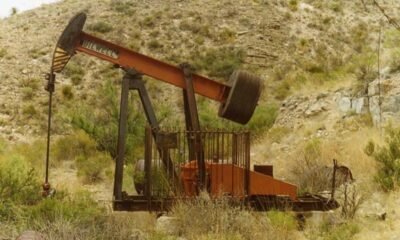aps
Electric Utility Lobbying Triumphs in 2025

Arizona’s largest electrical utility, Arizona Public Service Co. (APS), recently achieved significant legislative victories in 2025, receiving approval for two crucial bills signed by Governor Katie Hobbs.
These victories stem from APS’s extensive efforts to cultivate relationships with state officials and community leaders across Arizona. Over the years, the utility, along with its parent company Pinnacle West Capital Corp., has funneled millions into political donations and community initiatives, supporting various organizations including food banks and schools.
Governor Hobbs is notably a beneficiary of this financial influence, having received over $350,000 from Pinnacle West for her inauguration and legal expenses. This funding, disclosed in filings with the Arizona Secretary of State, highlights the extent of APS’s contributions to politicians throughout the state.
APS remains unrepentant about its role in legislative advocacy. Spokesman Mike Philipsen emphasized the company’s commitment to public policy, stating, “We engage in the public policy process for the benefit of our customers, shareholders, employees, communities, and other stakeholders.”
The recent legislation includes a measure shielding APS from lawsuits if its equipment triggers wildfires, alongside another permitting the issuance of bonds to offset the costs associated with selling aging power plants.
Implementing bond issuances will introduce a new charge to the monthly bills of 1.4 million Arizona customers. The liability shield could potentially save APS billions in the event of devastating wildfires caused by its equipment, amidst concerns that wildfires have led to enormous payouts for utilities in other states.
While other utilities like Tucson Electric Power have rallied in support of these measures, it was APS that primarily shaped the bills and mobilized support to sway lawmakers.
Sandy Bahr, director of the Sierra Club’s Grand Canyon chapter, expressed concern over APS’s escalating political clout, stating, “If we don’t like what they’re doing, how they’re spending our ratepayer dollars, we can’t just go somewhere else for our electricity.”
Bahr emphasized the pressing need for state oversight to ensure accountability from monopolistic utilities like APS. Her organization joined a chorus of opposition to the recent bills, citing alarming influences observed during legislative hearings.
The wildfire liability protection gives APS substantial safeguards against lawsuits stemming from catastrophic incidents, although criticisms arose regarding its constitutional implications. Adjustments were made during the legislative process to retain some rights for potential plaintiffs, though key protections remain intact for APS.
The “securitization” measure faced considerable pushback, largely due to APS’s intentions to continue operating the Four Corners Power Plant. This coal-fired plant, eyed for closure by 2031, may now remain operational under the new bond issuance framework.
Bahr pointedly criticized this approach, questioning the wisdom of prolonging outdated facilities while failing to provide transition support for affected communities.
Governor Hobbs defended her decisions, claiming the new laws would alleviate energy costs for Arizonans and enhance grid resilience. Nevertheless, critics argue that these measures primarily serve the interests of large utility companies at the expense of consumers.
As APS’s influence deepens, Bahr reiterated the necessity of accountability mechanisms to check the power of utility monopolies. The ability of APS to navigate legislative processes, backed by its extensive lobbying efforts, raises pressing concerns for the future of Arizona’s energy policy.


















